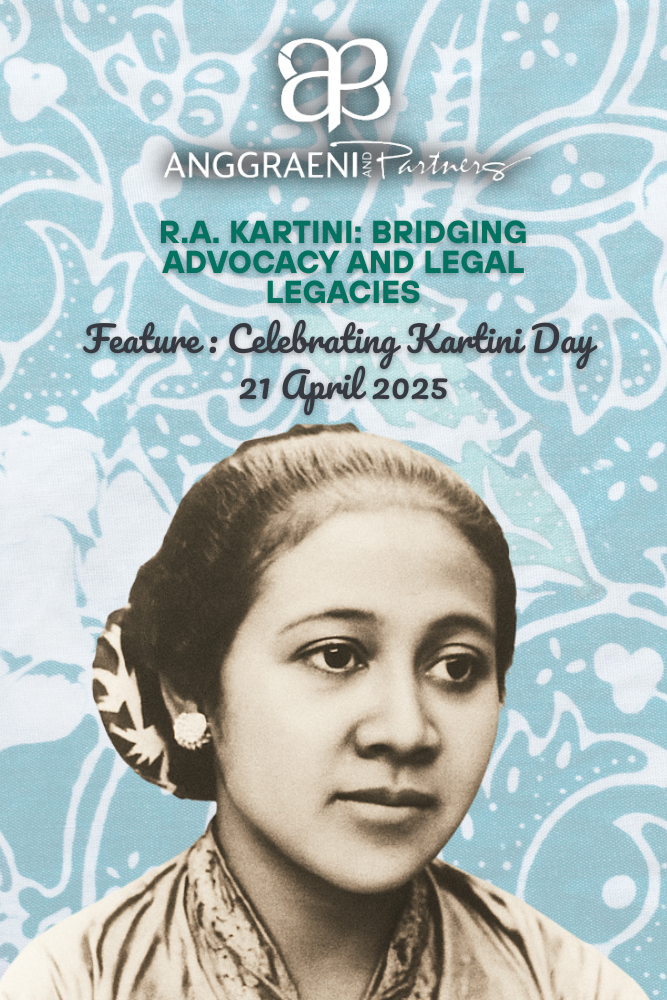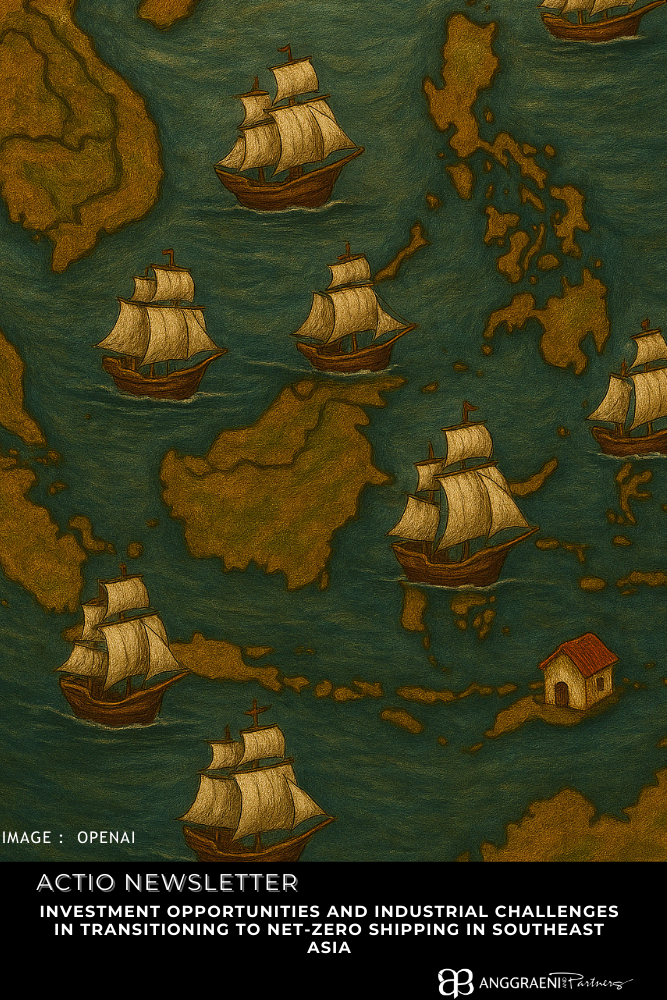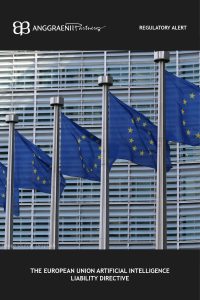REGULATORY ALERT: THE EUROPEAN UNION ARTIFICIAL INTELLIGENCE LIABILITY DIRECTIVE
BACKGROUND
In September 2022, the European Commission[2] (EC) proposed the Artificial Intelligence (AI) Liability Directive[3], aiming to adapt non-contractual civil liability rules to AI. This initiative seeks to modernise the European Union (EU) liability framework to address damages caused by AI systems, ensuring equivalent protection for those harmed by AI as other technologies. The directive introduces a rebuttable ‘presumption of causality’, easing the burden of proof for victims, and empowers national courts to demand evidence disclosure for high-risk AI systems suspected of causing damage.[4]
KEY REQUIREMENTS
The directive aligns with the broader EU strategy for trustworthy AI, addressing liability complexities in AI technology usage across various sectors. The existing EU liability framework, including the Product Liability Directive and national rules, is being reformed to address challenges posed by AI, particularly the difficulty in proving fault or causality due to AI’s opaque and complex nature. The directive proposes a fault-based liability regime for damages caused by AI, irrespective of the AI system’s risk level under the AI Act.
IMPLICATIONS
This directive marks a significant change in AI-related liability claims, influencing EU Member States and potentially setting a global precedent. This is particularly relevant for countries like Indonesia, where AI use is increasing.
- Global Regulatory Influence: The EU’s directive may inspire similar global laws, affecting AI technology compliance and legal practices worldwide.
- Legal and Financial Risks: AI technology users and developers could face heightened legal challenges and financial liabilities, highlighting the need for proactive compliance.
- Operational Adjustments: Companies, especially those dealing with the EU market, might need to modify operations to meet new AI liability laws, necessitating an understanding of EU and local regulations.
CONSIDER
- Legal Preparedness: Businesses in Indonesia and elsewhere should prepare for the potential implications of this EU directive, especially those with ties and dealings with the EU market.
- AI Compliance Strategy: Developing a strategy to ensure compliance with the evolving legal landscape around AI, including understanding the presumptions of causality and evidence disclosure requirements, is vital.
- Cross-Border Legal Consultation: Given the international nature of AI technologies, seeking legal advice that encompasses both EU and local Indonesian regulations is recommended.
CONCLUSION
The EU’s AI Liability Directive represents a pivotal development in international technology law, setting a precedent for AI liability that could influence future legislation worldwide. Businesses and legal practitioners in Indonesia and globally should closely monitor these developments, adapting their operational and legal strategies accordingly to navigate this changing landscape.
[1] Setyawati Fitrianggraeni holds the position of Managing Partner at Anggraeni and Partners in Indonesia. She also serves as an Assistant Professor at the Faculty of Law, University of Indonesia, and is currently pursuing a PhD at the World Maritime University in Malmo, Sweden. This article is co-authored by Sri Purnama, Junior Legal Research and Jericho Xafier Ralf, Trainee Associate at Anggraeni and Partners.
[2] The European Commission is the European Union’s politically independent executive who is responsible for drawing up proposals for new European Legislation, and it implements the decision of the European Parliament and the Council of the European Union.
[3] The Draft Regulation referenced in this document pertains to the version dated February 2023, as obtained from the official website of the European Parliament, accessible at https://www.europarl.europa.eu/RegData/etudes/BRIE/2023/739342/EPRS_BRI(2023)739342_EN.pdf. Please note that subsequent amendments or updates to the Draft Regulation may have occurred after this date. Readers are advised to consult the latest version of the document for the most current information.”
[4] Tamblama, Madiega. “Artificial Intelligence Liability Directive”, Artificial intelligence liability directive (europa.eu), pp. 1. Accessed on 15 November 2023.
DISCLAIMER:
This disclaimer applies to the publication of articles by Anggraeni and Partners. By accessing or reading any articles published by Anggraeni and Partners, you acknowledge and agree to the terms of this disclaimer:
No Legal Advice: The articles published by Anggraeni and Partners are for informational purposes only and do not constitute legal advice. The information provided in the articles is not intended to create an attorney-client relationship between Anggraeni and Partners and the reader. The articles should not be relied upon as a substitute for seeking professional legal advice. For specific legal advice tailored to your individual circumstances, please consult a qualified attorney.
Accuracy and Completeness: Anggraeni and Partners strive to ensure the accuracy and completeness of the information presented in the articles. However, we do not warrant or guarantee the accuracy, currency, or completeness of the information. Laws and legal interpretations may vary, and the information in the articles may not be applicable to your jurisdiction or specific situation. Therefore, Anggraeni and Partners disclaim any liability for any errors or omissions in the articles.
No Endorsement: Any references or mentions of third-party organizations, products, services, or websites in the articles are for informational purposes only and do not constitute an endorsement or recommendation by Anggraeni and Partners. We do not assume responsibility for the accuracy, quality, or reliability of any third-party information or services mentioned in the articles.
No Liability: Anggraeni and Partners, its partners, attorneys, employees, or affiliates shall not be liable for any direct, indirect, incidental, consequential, or special damages arising out of or in connection with the use of the articles or reliance on any information contained therein. This includes but is not limited to, loss of data, loss of profits, or damages resulting from the use or inability to use the articles.
No Attorney-Client Relationship: Reading or accessing the articles does not establish an attorney-client relationship between Anggraeni and Partners and the reader. The information provided in the articles is general in nature and may not be applicable to your specific legal situation. Any communication with Anggraeni and Partners through the articles or any contact form on the website does not create an attorney-client relationship or establish confidentiality.
By accessing or reading the articles, you acknowledge that you have read, understood, and agreed to this disclaimer. If you do not agree with any part of this disclaimer, please refrain from accessing or reading the articles published by Anggraeni and Partners.
For further information, please contact:
P: 6221. 7278 7678, 72795001
H: +62 811 8800 427
Anggraeni and Partners, an Indonesian law practice with a worldwide vision, provides comprehensive legal solutions using forward-thinking strategies. We help clients manage legal risk and resolve disputes on admiralty and maritime law, complicated energy and commercial issues, arbitration and litigation, tortious claims handling, and cyber tech law.
S.F. Anggraeni
Managing Partner
Sri Purnama
Junior Legal Research Analyst
Jericho Xafier Ralf
Junior Associate




